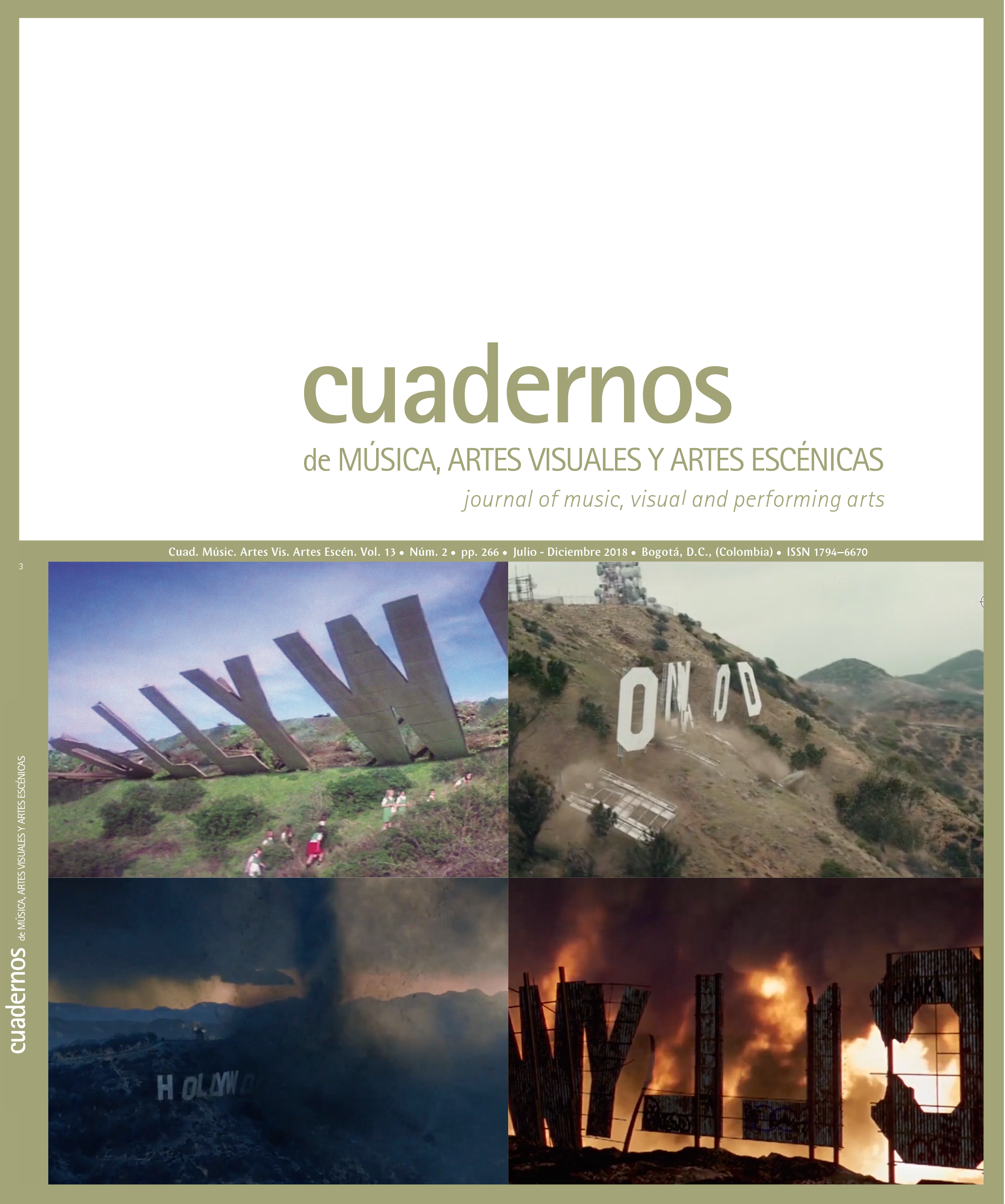Abstract
In this paper, I explore how contemporary musicians using electronic technologies in improvised music conceptualize skill and virtuosity in their musical practices. This includes ideas about the role and agency of technology, learned and repeatable physical skill, skill acquisition, skill transmission, and the projection of learned skill from traditional instruments onto new instruments. The musicians’ use of idiosyncratic and individually constructed instruments—instruments with little or no history of a performance practice—makes this field a rich resource to examine how such conceptions are developed. Among the musicians I interviewed, the relationship between physical skill and virtuosity is particularly contested. While they frequently value such skill, they also connect it to perceived excesses of certain factions within Western art music, jazz, and other established musical performance practices where physical skill can be conflated with (or considered as the primary element of) musical skill, writ large. This perception of the excess and the prioritization of physical skill have led some interviewed musicians to adopt antivirtuosity as a reactive counter-ideology or to explore the less tangible concepts of hearing, creativity, imagination, memory, novelty, innovation, and even ideas of management as constitutive of musical virtuosity and skill. This paper is part of a larger ethnographic examination of a diverse cross-section of contemporary musicians who improvise with new, repurposed, and reinvented electronic technologies, including Robert Henke (one of the original authors of the software package Ableton Live), guitarist Nels Cline (Wilco), composer and flute player Anne La Berge, and trumpeter/composer Wadada Leo Smith.
Bresler, Liora. 2004. Knowing Bodies, Moving Minds: Towards Embodied Teaching and Learning. Boston: Kluwer Academic Publishers.
Clark, Andy. 2003. Natural-Born Cyborgs: Minds, Technologies, and the Future of Human Intelligence. New York: Oxford University Press.
Clarke, Bruce, and Mark B. N. Hansen. 2009. Emergence and Embodiment: New Essays on Second- Order Systems Theory. Durham: Duke University Press.
Cline, Nels. 2011. “Personal interview by the author at the home of Nels Cline in Los Angeles, California.” December 28. MP4 File. Personal Collection.
Cycling74. Twitter Post. November 16, 2012, 3:17 PM. https://twitter.com/cycling74/ status/269580002809507840.
di Placido, Olivier. 2010. “Personal interview by the author at the home of Olivier di Placido in Berlin, Germany.” August 28. MP4 File. Personal Collection.
Dourish, Paul. 2001. Where the Action Is: The Foundations of Embodied Interaction. Cambridge: MIT Press. Henke, Robert. 2010. “Personal interview by the author at the home of Robert Henke in Berlin, Germany.” August 12. MP4 File. Personal Collection.
La Berge, Anne. 2010. “Personal interview by the author at the home of Anne La Berge in Amsterdam, The Netherlands.” August 1. MP4 File. Personal Collection.
Lippit, Takuro Mizuta (dj sniff). 2010. “Personal interview by the author at STEIM in Amsterdam, The Netherlands.” August 3. MP4 File. Personal Collection.
Makino, Yutaka. 2010. “Personal interview by the author at the home of Yutaka Makino in Berlin, Germany.” August 19. MP4 File. Personal Collection.
Ryan, Joel. 2010. “Personal interview by the author at STEIM in Amsterdam, The Netherlands.” August 3. MP4 File. Personal Collection.
Schick, Ignaz. 2010. “Personal interview by the author in Volkspark Friedrichshain, Berlin, Germany.” September 4. MP4 File. Personal Collection.
Shaw, Debra Benita. 2008. Technoculture: The Key Concepts. Oxford; New York: Berg Publishers. Smith, Wadada Leo. 2012. “Personal interview by the author at the home of Wadada Leo Smith in Ventura, California.” November 28. MP4 File. Personal Collection.
Taylor, Gregory. 2010. “Personal interview by the author at STEIM in Amsterdam, The Netherlands.” August 6. MP4 File. Personal Collection.
Esta revista científica se encuentra registrada bajo la licencia Creative Commons Reconocimiento 4.0 Internacional. Por lo tanto, esta obra se puede reproducir, distribuir y comunicar públicamente en formato digital, siempre que se reconozca el nombre de los autores y a la Pontificia Universidad Javeriana. Se permite citar, adaptar, transformar, autoarchivar, republicar y crear a partir del material, para cualquier finalidad, siempre que se reconozca adecuadamente la autoría, se proporcione un enlace a la obra original y se indique si se han realizado cambios. La Pontificia Universidad Javeriana no retiene los derechos sobre las obras publicadas y los contenidos son responsabilidad exclusiva de los autores, quienes conservan sus derechos morales, intelectuales, de privacidad y publicidad.
El aval sobre la intervención de la obra (revisión, corrección de estilo, traducción, diagramación) y su posterior divulgación se otorga mediante una licencia de uso y no a través de una cesión de derechos, lo que representa que la revista y la Pontificia Universidad Javeriana se eximen de cualquier responsabilidad que se pueda derivar de una mala práctica ética por parte de los autores. Como consecuencia de la protección brindada por la licencia de uso, la revista puede publicar retractaciones o corregir la información ya publicada. La publicación de contenidos en esta revista no representa regalías para los contribuyentes.



